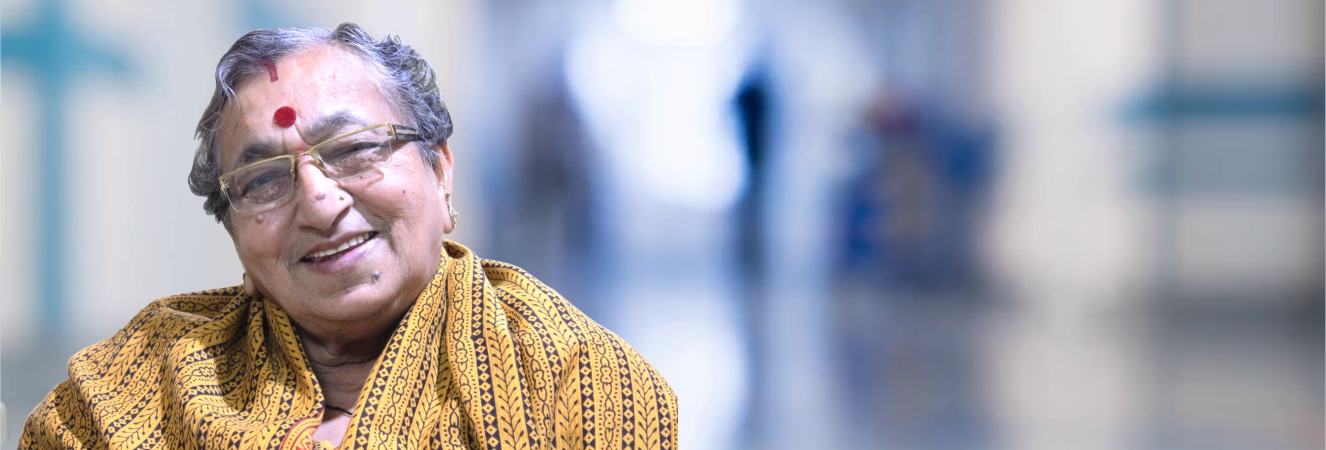
Cancer is a traumatic disease in itself, but what makes it even worse is not being able to get treatment in your own city. Imagine that you have to travel to another city leaving the comfort of your home at the time when you need it the most. Many cancer patients living in small cities and villages have to go through this harrowing experience. When I was diagnosed with cancer I had to do the same. Me and my husband visited many big hospitals in the vicinity of our city and even in Delhi. We knew of cancer hospitals outside of Ambala and never thought that treatment was available in our own city, until we were referred to the Rotary hospital by a friend. I then started getting treatment from the Rotary hospital and I am grateful and thank all those kind-hearted people who are behind the setting up of this great institution.
“When will I get better?
A telling story for the need of local and specialized healthcare facilities
Our Palliative care unit ‘Sneh Sparsh’ visits many patients every year to bring some comfort and relief to their painful journey. While many patients are able to accept reality, there are some who are too young to understand. Recently the palliative care team started attending to a young boy who suffers from Adenoid Cystic Carcinoma. The team visits him for dressing and counseling. The hardest challenge that our team faces is to answer his question ‘when will I get better’. The boy and his family live in a village near Ambala, and only knew of one hospital – PGI in Chandigarh for cancer. Long waiting time and travel aggravated the disease making it difficult to be cured. The boy has now lost one of his eye and suffers from a lot of pain. Our hope is to bring some relief to his present state and pray that he gets well!
The hospital bill brings a smile to someone’s face!
“After being turned down by many hospitals for my 70 year old mother, I got referred to the Rotary Hospital in Ambala by a trusted source. My mother complaint of painful swelling in the right inguinal region. I took her to several places but nobody was willing to operate on an old poor lady, for the risks involved and lack of funds. We were relieved that the Rotary Hospital admitted my mother without any delay and all the facilities and services needed for a high risk case as ours, were available in the hospital. However we were very apprehensive of the treatment costs. We were often told by our visiting relatives to be prepared to empty our pockets to pay the hospital bill. I used to inquire about the amount every now and then, but each time was reassured by the hospital staff and other patients to not worry as this is not a profit driven institution. Finally, when my mother’s treatment ended I was anxiously waiting for the invoice and was instantly relieved to see the amount, so much so that it made me smile!”
